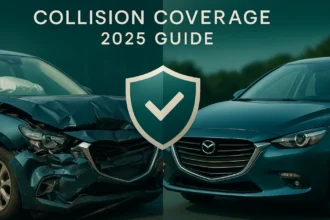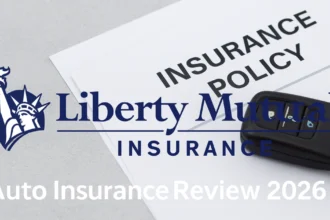When buying or financing a car, familiarizing yourself with the various auto loan types available can ensure you choose the best lending option to match your goals and financial circumstances. This comprehensive guide examines all the different loans for purchasing and refinancing vehicles.
New and Used Car Purchase Loans

The most common auto loans allow borrowing money to pay for a new or used car, either from a dealership or private party sale.
New Car Loans
New car loans finance the purchaser of a brand new, never titled vehicle from a franchise dealership’s inventory. Since the car has no prior owners, it comes with the full factory warranty.
Pros
- Cover latest models with cutting-edge tech and features
- Qualify for 0% APR deals and incentives
- Lower maintenance costs under warranty
Cons
- New cars depreciate quickly, creating negative equity
- Require larger loan amounts
- Come with higher insurance premiums
Used Car Loans
Used auto loans apply to purchasing pre-owned and certified pre-owned vehicles. The prior ownership introduces some risk, so interest rates trend 1-4% higher than new cars depending on factors like age, mileage and condition.
Pros
- Significantly lower sticker prices
- Slower depreciation compared to brand new
- More affordable monthly payments
Cons
- No ability to customize features
- Repairs may be required as cars age
- Loan maximums are lower than new cars
Both new and used car loans typically come with 3-6 year repayment term options. 20% or higher down payments are ideal to get approved and keep monthly payments reasonable.
READ ALSO: Finding the Best Place to Get an Auto Loan
Private Party Auto Loans
Private party lending allows buying vehicles sold by individual owners rather than dealers. This presents unique risks for lenders, who offset that by charging higher interest rates.
Rates for private party loans average 3-5% higher than dealer purchases. The vehicles must also fall under mileage and age limits, which commonly cap at 10 years old and 100,000 miles.
Pros
- Access to more unique and specialty vehicles
- Potentially negotiate better prices
- Avoid dealer processing fees
Cons
- No inspection or reconditioning process
- No test drive or return policy
- Questionable service history
Overall, private party financing works best for unique dream cars or motivated sellers passively listing great deals online. Know that lending standards and rates skew towards the higher risk the lenders take on.
Lease Buyout Loans
Lease buyout financing allows you to purchase your leased car at the end of the contract. The buyout price gets stated in your original lease agreement.
Then at lease maturity, the lending can help cover the buyout cost plus taxes and fees. This transforms your leased car into one fully owned.
Pros
- Lets you keep a car you enjoy driving
- No shopping for another used car
- Save on depreciation already taken
Cons
- Loan payment exceeds lease payment
- Interest fees on top of negotiated price
- Extra costs like registration fees
These loans work best for those wanting to keep popular models with strong resale value beyond the 2-4 year leasing terms.
Auto Refinance Loans
Current car owners use auto refinancing loans to replace existing financing with improved terms. Refinancing works similarly to home loans.
You can refinance to lower the interest rate, adjust monthly payments, or change the length of the loan. Check your qualifying credit score and estimated savings first.
Pros
- Lower interest rates save money
- Improve credit opens better rates
- Shorter terms pay loans quicker
Cons
- Adds lengthier payments if term extended
- Origination and administrative fees
- No effect on negative equity
Refinancing works best for those with great credit and high interest loans. Use online calculators to project your potential savings from reduced rates. You ideally want to break even on fees within 18-24 months of refinancing.
Cash-Out Auto Refinance
Borrowers looking to tap into their car’s equity can take out a cash-out auto refinance. This converts equity into usable funds while refinancing the existing loan balance.
You get approved for a loan higher than what you currently owe. The proceeds from the new loan repay the old one, while the difference converts into spendable money.
Pros
- Access equity without selling the car
- Take cash to pay other debts
- Combine refinancing with cash-out
Cons
- Higher loan balances and interest costs
- Risks going upside-down on loan
- Need enough equity to make it worthwhile
These are best for those in good standing needing extra temporary funds. Just know the additional principal increases payments and interest charges.
Other Auto Loan Variations
Beyond the main purposes highlighted so far, a few other subtleties differentiate auto lending options further:
Interest Types
- Simple Interest – Most common, interest recalculates each payment based on the declining principal balance. This saves money by applying more payments towards principal as the loan amortizes.
- Precomputed Interest – All interest for the full term calculates at loan origination and gets incorporated into monthly payments. Best avoided if you ever plan to pay early.
Where You Get Approved
- Direct Lending – Securing financing directly through a bank or credit union before negotiating at the dealership. This allows knowing exact rates and terms you qualify for.
- Indirect Lending – Financing offered at the dealership’s discretion by their network of subprime lenders. Convenience gets offset by generally higher rates.
Collateral and Security
- Secured Loans – Requires an asset like the car itself as collateral that the lender can seize if you default. This provides security to the lender when approving applicants.
- Unsecured Loans – No collateral is required, but they come with stricter eligibility, higher rates, and lower approval odds. Avoid unless extremely necessary.
READ ALSO: Auto Loan Refinancing: A Comprehensive Guide
To Recap
With so many auto loan varieties catering to different financial situations, it pays off comparing the pros and cons of each before committing. Those looking to lower payments through better rates or tap home equity should understand refinancing options.
New car buyers wanting the latest advanced features should focus on purchase loans and incentives. Drivers simply needing basic transportation might find better values looking at older used vehicles.
No matter the circumstances, use online calculators and tools to estimate payments across multiple scenarios. Finding the best rate for your credit score and financial goals takes research across lenders. But the savings accumulated over years of payments makes it worthwhile.
Frequently Asked Auto Loan Questions
Below are answers to some other common questions regarding different types of auto lending:
Which auto loan is easiest to get approved for?
New car loans generally come with lower credit barriers to approval compared to used vehicles. Leased car buyouts also provide easy financing terms since the applicant proved responsible during years of on-time lease payments.
Should I get a loan through the dealership or bank?
Bank preapprovals allow you to secure better rates thanks to comparison shopping. But dealership financing adds convenience to the buying process. Mixing the two methods gives you negotiating power on rates while streamlining paperwork.
How much cash can you take out when refinancing?
The amount of cash you can pull out depends entirely on the equity built up in the vehicle. Most lenders limit the total new loan amount to 120% of the car’s current value. Doing an appraisal first reveals how much cash could get extracted.
Which is cheapest: buying from dealer or private party?
Private party purchases often price 5-15% below dealership rates because they incur no reconditioning and overhead costs. However, you may compromise on elements like vehicle history reports, warranties, and financing rates. Weight if the savings outweigh losing those protections.
Should I lease or finance a car I cannot afford to buy?
If you truly cannot afford to buy a certain new car, leasing provides a more viable avenue to drive it for a few years. But expect mileage limits and wear-and-tear guidelines to avoid excess fees. Purchase the car outright if holding onto it long term.
What credit score is needed to refinance a car loan?
To qualify for a refinance loan, you typically need a credit score in the range of 620-650 or higher. This provides enough confidence for the new lender to pay off your existing auto loan balance. Shop for the best rates once above a 670 FICO.
In another related article, Auto Insurance Rates By State in 2023: A Comprehensive Analysis





